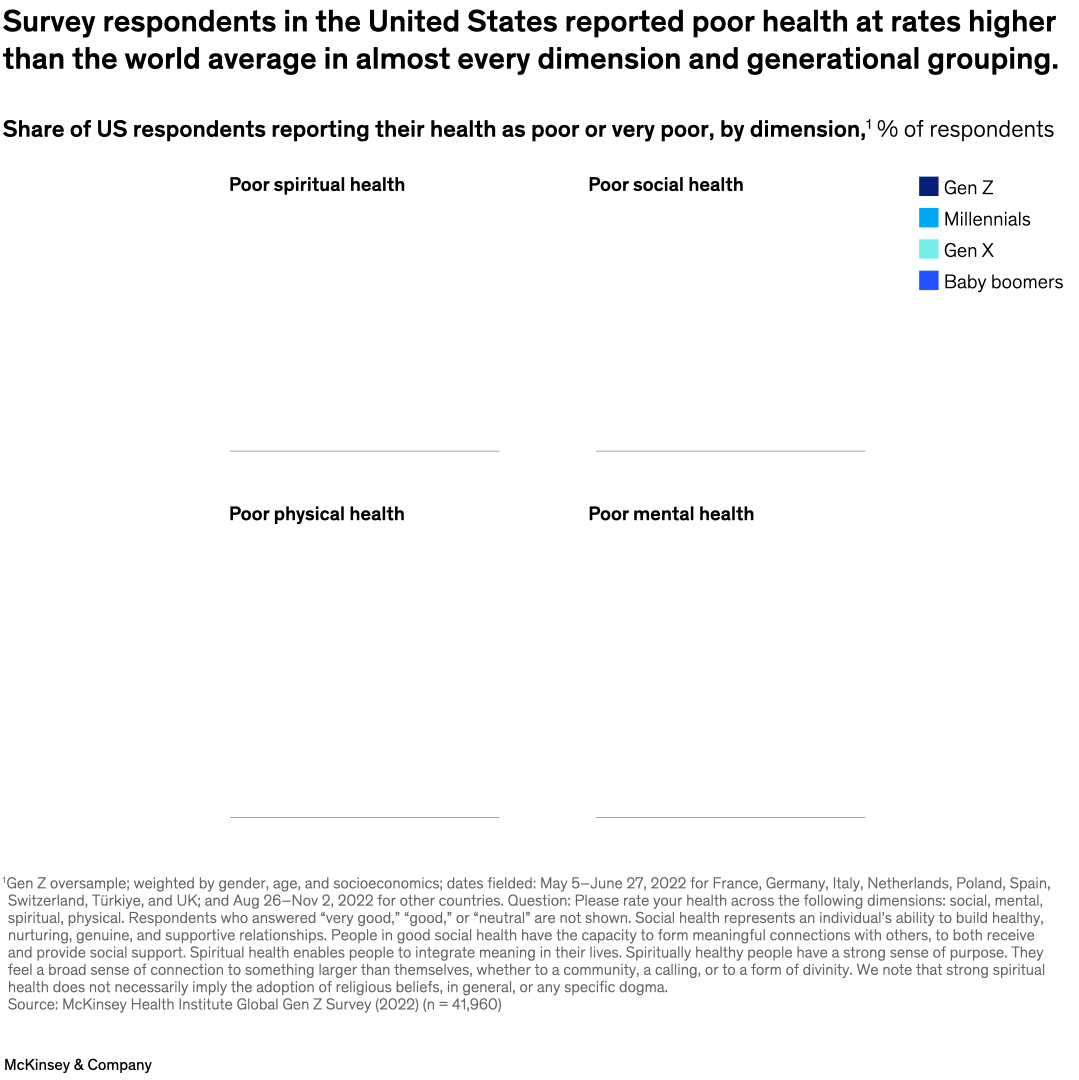Gen Z’s spiritual health is suffering compared with other age groups. In a McKinsey Health Institute survey of more than 41,000 respondents across 26 countries, partner Erica Coe and coauthors find that overall, Gen Zers report more challenges with spiritual health than their non–Gen Z counterparts; for example, Gen Zers report poor spiritual health at three times the rate of baby boomers. Since spiritual health—having a sense of self-purpose and a connection to something larger than oneself—intersects with other dimensions of holistic health, insights into these aspects can lead to better resilience.

Image description:
A set of 4 bar charts show US survey respondents’ indications of poor or very poor health across 4 dimensions: spiritual health, social health, physical health, and mental health. The data are further broken into generational response rates within each health dimension and compared with the world average for each dimension and generational group. Overall, US respondents indicate poor and very poor health at higher rates than the world average in all dimensions. This is most stark in the social and mental health dimensions, particularly among Gen Z, with 32% of US respondents indicating poor or very poor health, compared with 14% as the world average for that age group. Twenty-three percent of Gen Z in the US reported poor or very poor social health, compared with 14% as the world average for that age group.
Source: McKinsey Health Institute Global Gen Z Survey (2022) (n = 41,960).
End of image description.
To read the article, see “In search of self and something bigger: A spiritual health exploration,” May 13, 2024.